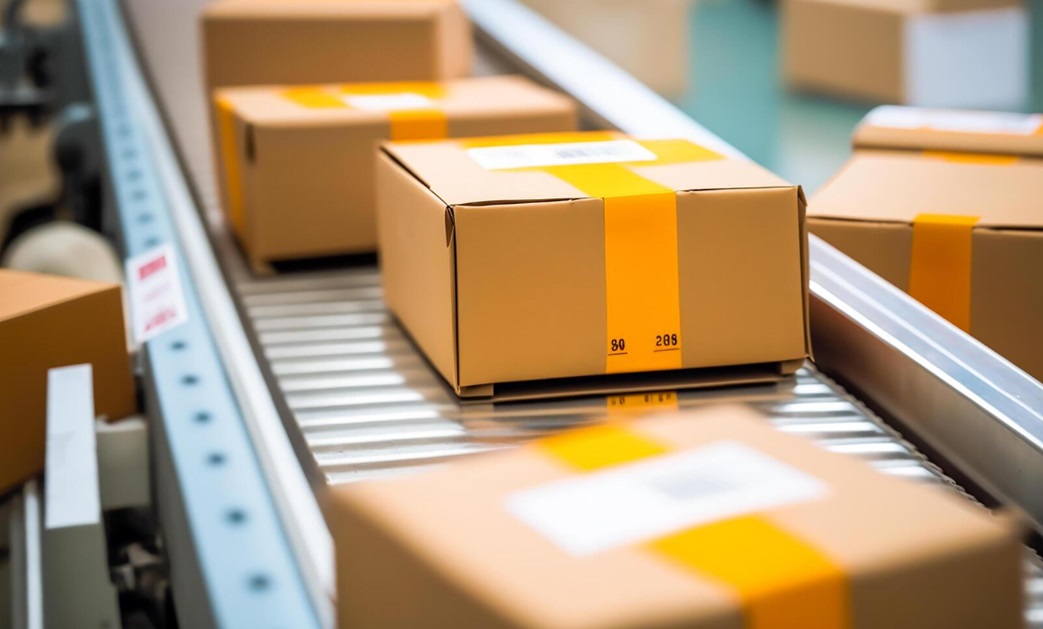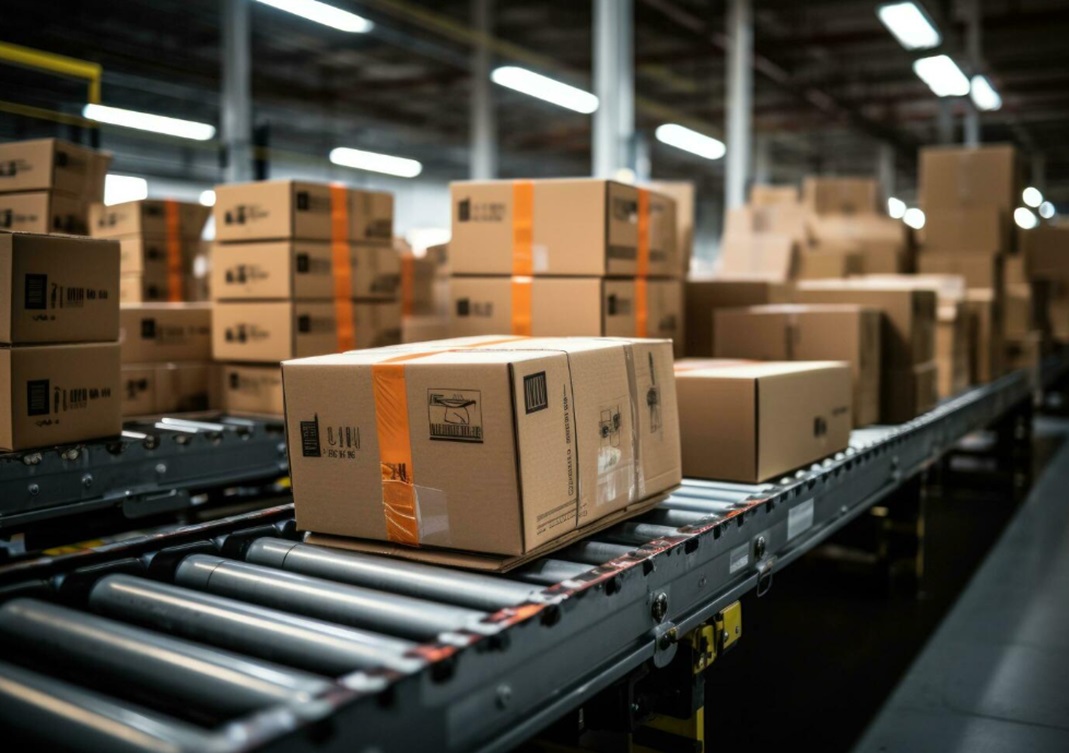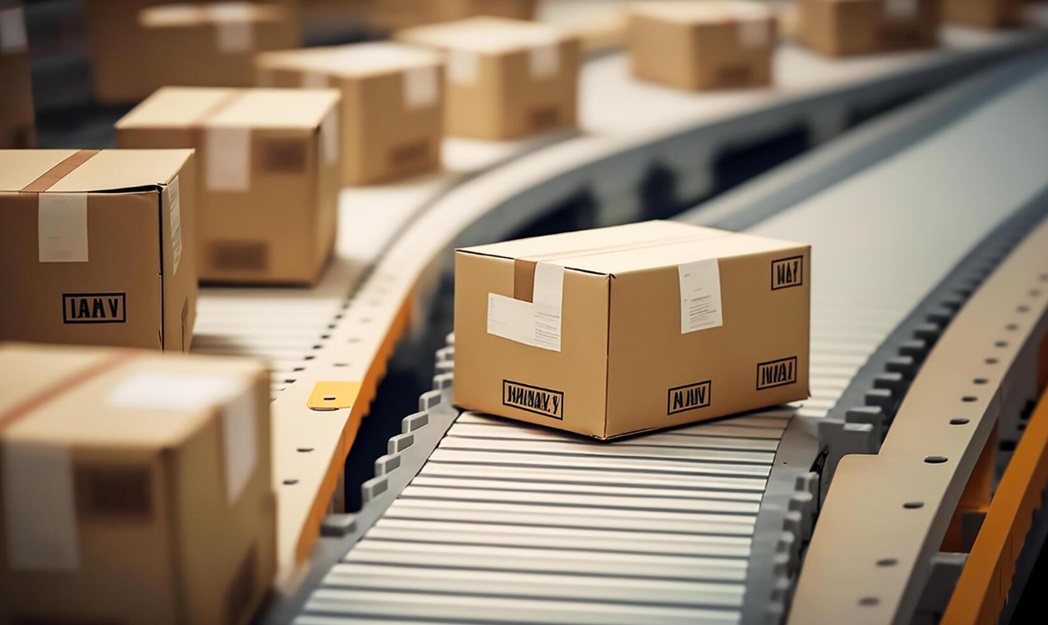Ecommerce Fulfillment: In-House vs. Outsourcing Pros and Cons
In the fast-paced world of ecommerce, efficient and reliable order fulfillment is crucial to business success. Ecommerce fulfillment involves all the steps from receiving an order to delivering it to the customer. Whether you handle these processes in-house or outsource them to a third-party fulfillment service can significantly impact your business. This guide explores the pros and cons of both approaches, helping you make an informed decision for your ecommerce business.

Ecommerce order fulfillment is a comprehensive process that ensures customers receive their purchased goods in a timely and satisfactory manner. This process is a crucial part of the ecommerce business model, encompassing a series of coordinated steps that start when an order is placed and end when the product reaches the customer’s doorstep. It involves the management of inventory, the processing of orders, the logistics of shipping, and the handling of returns. Each stage is essential for maintaining operational efficiency and ensuring a positive customer experience. This includes:
- Inventory Management: Inventory management is the backbone of ecommerce order fulfillment. It involves the systematic storage and management of products that are available for sale.
- Order Processing: Order processing is a critical phase where the customer’s order is converted from a digital request into a physical shipment.
- Shipping and Logistics: Shipping and logistics cover the transportation of the order from the fulfillment center to the customer’s location.
- Returns Management: Returns management is an integral part of ecommerce order fulfillment that deals with the handling of returned items and processing refunds or exchanges.
Effective ecommerce fulfillment ensures timely delivery, accurate order handling, and high customer satisfaction.
In-House Ecommerce Fulfillment
In-house ecommerce fulfillment refers to the process where a business manages all aspects of order fulfillment internally. This approach involves handling inventory storage, order processing, packaging, shipping, and returns management within the organization, rather than outsourcing these tasks to a third-party logistics (3PL) provider. By keeping fulfillment operations in-house, businesses maintain full control over their processes, allowing them to tailor operations to meet specific needs and uphold quality standards. However, this method also comes with its own set of challenges that require careful consideration.
Pros of In-House Ecommerce Fulfillment
- Control and Flexibility: Managing fulfillment in-house offers significant advantages in terms of control and flexibility:
- Customizable Processes: Businesses can tailor every aspect of the fulfillment process to align with their specific needs and business model. This includes customizing workflows, storage solutions, and order handling procedures. The ability to adjust processes quickly in response to market changes or business requirements ensures that operations remain agile and efficient.
- Quality Assurance: Direct oversight of the fulfillment process allows for stringent quality control measures. Businesses can ensure that each order is handled with care, reducing the likelihood of errors and enhancing customer satisfaction. Quick detection and resolution of issues are possible, maintaining high service standards.
- Branding Opportunities: In-house fulfillment provides unique opportunities to strengthen brand identity and customer relationships:
- Customized Packaging: Businesses can use branded packaging materials, including boxes, labels, and packing slips, to create a memorable unboxing experience for customers. Personalized touches, such as thank-you notes or special offers, can be included, which not only enhances customer satisfaction but also reinforces brand recognition and loyalty.
- Direct Customer Interaction: By handling fulfillment in-house, businesses maintain direct communication with their customers throughout the order process. This direct interaction allows for personalized customer service and the ability to address customer concerns promptly, fostering stronger relationships and loyalty.
- Cost Management: In-house fulfillment can offer significant cost-saving opportunities, particularly in the long term:
- Avoid Third-Party Fees: By eliminating the need for third-party fulfillment services, businesses can save on various fees associated with outsourcing, such as storage fees, handling fees, and per-order charges. This can lead to substantial cost reductions, particularly for high-volume sellers.
Scalability: Businesses have full control over scaling their fulfillment operations. They can adjust their infrastructure and processes in response to growth, ensuring that fulfillment capabilities expand in line with business needs. This avoids the limitations and additional costs that may come with relying on external providers for scaling.
Cons of In-House Ecommerce Fulfillment
- Resource Intensive: In-house fulfillment requires a significant investment of resources, both financial and operational:
- High Initial Investment: Setting up an in-house fulfillment operation involves substantial upfront costs. Businesses need to invest in physical infrastructure such as warehouses and storage facilities, as well as technology for inventory management, order processing, and logistics. These costs can be prohibitive, particularly for smaller businesses or startups.
- Labor Costs: Managing an in-house fulfillment operation requires hiring and training staff to handle various tasks, including picking, packing, and shipping orders. Ongoing labor costs for salaries, benefits, and training can add up, making this a significant and continuous expense.
- Operational Complexity: Running an in-house fulfillment operation adds a layer of complexity to business management:
- Time-Consuming: Managing the entire fulfillment process can divert attention and resources away from core business activities, such as product development, marketing, and customer engagement. The time and effort required to oversee fulfillment operations can strain business resources and impact overall efficiency.
- Scalability Challenges: Rapid business growth can put a strain on existing fulfillment resources and infrastructure. Without adequate planning and investment, businesses may struggle to scale their operations quickly enough to keep pace with demand, leading to delays and potential customer dissatisfaction.
- Logistics Challenges: Handling logistics internally can be complex and costly, particularly for businesses with diverse shipping requirements:
- Shipping Management: Managing shipping logistics, especially for international orders, involves navigating complex regulations, customs procedures, and shipping requirements. This can be time-consuming and costly, requiring expertise and resources that may be challenging to manage internally.
Returns Processing: Efficiently managing returns and exchanges is a critical component of ecommerce fulfillment. Handling returns in-house can be resource-draining, requiring systems and staff to process returned items, issue refunds or exchanges, and update inventory. Poorly managed returns can lead to customer dissatisfaction and increased costs.
Outsourcing Ecommerce Fulfillment
Outsourcing ecommerce fulfillment entails partnering with a third-party logistics (3PL) provider to manage and execute the order fulfillment process. This strategy allows businesses to leverage the expertise and infrastructure of specialized providers, streamlining operations and enabling a focus on core business activities such as marketing, sales, and product development. While outsourcing offers numerous benefits, it also presents certain challenges that need to be carefully considered. Below, we explore the key advantages and potential drawbacks of outsourcing ecommerce fulfillment in detail.
Pros of Outsourcing Ecommerce Fulfillment
- Cost Efficiency: Outsourcing ecommerce fulfillment can lead to significant cost savings, which is particularly beneficial for small to medium-sized businesses looking to optimize their budgets:
- Lower Overheads: By partnering with a 3PL provider, businesses can reduce or eliminate the costs associated with maintaining their own warehousing facilities, including rent, utilities, and maintenance. Additionally, outsourcing reduces the need for a large in-house fulfillment team, saving on salaries, benefits, and training expenses. This allows businesses to allocate their financial resources more effectively.
- Economies of Scale: 3PL providers typically handle large volumes of shipments for multiple clients, which enables them to negotiate better rates with shipping carriers. These savings are often passed on to their clients, resulting in lower shipping costs. Moreover, the ability to process bulk orders efficiently can lead to further cost reductions and improved margins.
- Scalability: Outsourcing fulfillment provides the flexibility to scale operations in response to changing business needs and market demands:
- Flexible Capacity: 3PL providers have the infrastructure and resources to accommodate fluctuations in order volume, making it easy for businesses to scale up during peak seasons, such as holidays or sales events, without investing in additional space or staff. This ensures that businesses can meet customer demand without overextending their resources during slower periods.
- Global Reach: Many 3PL providers have established international networks and expertise in handling cross-border logistics, customs regulations, and international shipping. This allows businesses to expand their market reach and offer global shipping options to their customers, facilitating growth in international markets without the complexities and costs of managing global logistics in-house.
- Operational Expertise: Outsourcing to a 3PL provider leverages the specialized knowledge and advanced technology of experienced fulfillment professionals:
- Specialized Services: 3PL providers offer a range of services, including inventory management, order processing, packaging, and shipping, all tailored to the specific needs of ecommerce businesses. Their expertise in logistics and fulfillment ensures that these processes are handled efficiently and accurately, leading to improved operational performance and customer satisfaction.
Focus on Core Business: By delegating the fulfillment process to a third party, businesses can free up valuable time and resources that can be redirected toward core activities such as product development, marketing strategies, and customer service. This allows for greater focus on growth and innovation, which is essential for long-term success in a competitive market.
Cons of Outsourcing Ecommerce Fulfillment
- Less Control: Outsourcing fulfillment involves entrusting a critical aspect of business operations to an external provider, which can lead to reduced control over certain elements of the fulfillment process:
- Dependency on Third-Party: Relying on a 3PL provider means relinquishing some control over the fulfillment process, including order handling, packaging, and shipping. This dependency can lead to challenges in maintaining consistent quality and service standards, particularly if the provider’s performance does not align with the business’s expectations.
- Potential Quality Issues: There is a risk that the 3PL provider may not adhere to the same quality standards as the business itself, potentially leading to issues such as incorrect order fulfillment, damaged goods, or delayed shipments. These issues can negatively impact customer satisfaction and harm the business’s reputation if not addressed promptly and effectively.
- Integration Challenges: Integrating a 3PL provider’s systems with the business’s existing ecommerce platform and processes can be complex and time-consuming:
- Technology Compatibility: Ensuring seamless integration between the business’s ecommerce platform and the 3PL provider’s technology systems can be challenging. This process may require significant technical expertise and investment in software solutions to facilitate data synchronization, real-time inventory tracking, and order management. Any incompatibility or delays in integration can disrupt operations and affect order fulfillment efficiency.
- Data Sharing: Sharing sensitive customer and inventory data with a third-party provider poses potential security risks. Businesses must ensure that the 3PL provider has robust data protection measures in place to safeguard against data breaches and unauthorized access. Additionally, compliance with data protection regulations, such as GDPR or CCPA, is crucial to avoid legal complications and maintain customer trust.
- Service Costs: While outsourcing can lead to cost savings, it also involves ongoing expenses that need to be carefully managed:
- Ongoing Fees: Partnering with a 3PL provider involves regular costs for their services, including storage fees, handling fees, and shipping charges. These expenses can add up over time and may impact the business’s profitability, particularly if the provider’s fees increase or if additional services are required.
Hidden Charges: Businesses may encounter unexpected fees from their 3PL provider, such as surcharges for peak seasons, special handling fees for fragile or oversized items, or additional costs for expedited shipping. It is essential to review the provider’s pricing structure thoroughly and negotiate clear terms to avoid unforeseen expenses that can strain the business’s budget.
Making the Decision: In-House vs. Outsourcing
Deciding between in-house and outsourced ecommerce fulfillment depends on various factors unique to your business. Consider the following aspects to make an informed choice:
Business Size and Volume
- Small Businesses: In-house fulfillment may be manageable and cost-effective initially, but outsourcing can provide scalability as the business grows.
- Medium to Large Businesses: Outsourcing can handle larger order volumes efficiently, allowing focus on strategic growth.
Cost Considerations
- Budget: Assess your budget for fulfillment operations. In-house fulfillment requires substantial upfront investment, while outsourcing spreads costs over time.
- Hidden Costs: Evaluate all potential costs, including hidden fees associated with both approaches.
Control and Customization
- Brand Experience: If maintaining a strong brand presence through packaging and customer interaction is crucial, in-house fulfillment offers more control.
- Quality Assurance: Direct oversight in-house ensures consistent quality, but reputable 3PL providers can also maintain high standards.
Scalability and Flexibility
- Growth Plans: Consider your business’s growth trajectory. Outsourcing offers flexibility and scalability, especially during peak periods.
- Seasonal Demand: If your business experiences significant seasonal fluctuations, outsourcing can accommodate varying order volumes.
Technological Integration
- Systems Compatibility: Ensure your ecommerce platform integrates smoothly with your chosen fulfillment method.
- Data Security: Prioritize data security and privacy when sharing information with third-party providers.
Logistics and Expertise
- Shipping Needs: Assess your shipping requirements, including international orders. 3PL providers often have established logistics networks.
- Operational Efficiency: Leverage the expertise of fulfillment providers to optimize operations and improve delivery times.
Conclusion
Choosing between in-house and outsourced ecommerce fulfillment is a critical decision that impacts your business’s efficiency, costs, and customer satisfaction. In-house fulfillment offers control, customization, and direct customer interaction but requires significant resources and management. Outsourcing provides cost efficiency, scalability, and operational expertise, albeit with less direct control and potential integration challenges.
Ultimately, the right choice depends on your business size, budget, growth plans, and specific fulfillment needs. By carefully evaluating the pros and cons of each approach, you can make a decision that aligns with your business goals and enhances your ecommerce operations.
Frequently Asked Questions
In-house fulfillment offers control and flexibility, allowing businesses to customize processes and ensure quality. It provides opportunities for branding through customized packaging and direct customer interaction. Additionally, it helps manage costs by avoiding third-party fees, and allows businesses to scale operations as needed, aligning with their specific ecommerce storefront needs.
Outsourcing reduces costs by eliminating the need for warehousing and staffing. It offers scalability, allowing businesses to easily handle order fluctuations and access global shipping networks. Partnering with a 3PL provider provides operational expertise, enabling businesses to focus on core activities like product development and marketing, enhancing their ecommerce fulfillment efficiency.
Small businesses might find in-house fulfillment cost-effective initially, but as they grow, outsourcing offers better scalability. Medium to large businesses benefit from outsourcing due to its ability to handle large order volumes efficiently, allowing them to focus on strategic growth and improving their ecommerce storefront operations.
Sustainability is a major focus in ecommerce fulfillment trends for 2024. Businesses are adopting eco-friendly packaging, using biodegradable materials, and minimizing packaging waste. Green logistics involves using electric delivery vehicles and partnering with carbon offset programs to reduce the environmental impact of shipping. These sustainable practices help ecommerce storefronts meet consumer demands for environmentally responsible operations, improving brand reputation and contributing to a healthier planet.
If maintaining a strong brand presence and direct customer interaction is crucial, in-house fulfillment offers more control over packaging and quality. However, outsourcing can still meet high standards with reputable 3PL providers. Decide based on your need for branding and quality assurance in your ecommerce fulfillment strategy.
Outsourcing offers flexibility and scalability, especially useful during peak seasons or rapid business growth. In-house fulfillment may struggle to scale quickly without adequate resources and planning. Evaluate your business’s growth trajectory and seasonal demand to choose the best ecommerce fulfillment method.
Evaluate your shipping requirements, including international orders. 3PL providers often have established logistics networks that simplify global shipping. If your business has complex logistics needs, outsourcing can enhance operational efficiency and improve delivery times, essential for successful ecommerce fulfillment.
Get A Quote
"*" indicates required fields



